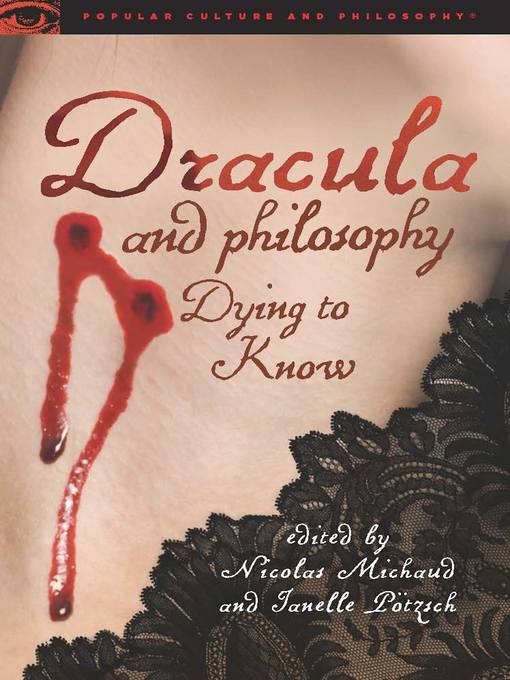1 of 1 copy available
1 of 1 copy available
Altmann decides whether Dracula can really be blamed for his crimes, since it's his nature as a vampire to behave a certain way. Arp argues that Dracula's addiction to live human blood dooms him to perpetual misery. Karavitis sees Dracula as a Randian individual pitted against the Marxist collective. Ketcham contrives a meeting between Dracula and the Jewish theologian Maimonides. Littmann maintains that if we disapprove of Dracula's behavior, we ought to be vegetarians. Mahon uses the example of Dracula to resolve nagging problems about the desirability of immortality. McCrossin and Wolfe, disinter some of the re-interpretations of this now-mythical character, and asks whether we can identify an essential Dracula. Pramik shows how the Dracula tale embodies Kierkegaard's three stages of life. Barkman and Versteeg ponder what it would really feel like to be Dracula. The Greens publish some previous unknown letters between Dracula and Camus's Meursault. Vuckovich looks at the sexual morality of characters in the Dracula saga. De Waal explains that "Dragula" is scary because every time this being appears, it causes "gender trouble."
-
Creators
-
Series
-
Publisher
-
Release date
July 14, 2015 -
Formats
-
Kindle Book
-
OverDrive Read
- ISBN: 9780812698954
- File size: 7558 KB
-
EPUB ebook
- ISBN: 9780812698954
- File size: 7558 KB
-
-
Languages
- English
Formats
- Kindle Book
- OverDrive Read
- EPUB ebook
subjects
Languages
- English
Loading
Why is availability limited?
×Availability can change throughout the month based on the library's budget. You can still place a hold on the title, and your hold will be automatically filled as soon as the title is available again.
The Kindle Book format for this title is not supported on:
×Read-along ebook
×The OverDrive Read format of this ebook has professional narration that plays while you read in your browser. Learn more here.
